
Graphic: Polygraph Design
Swapping and giving
Most of us own things that we no longer use. But what one person considers rubbish might turn out to be a useful item for someone else. Charitable institutions have long served as places where in-kind donations are made.

Graphic: Polygraph Design
But swapping and giving is currently trending: more and more markets, shops and online file sharing networks are emerging. What all these projects have in common is that an object does not change ownership for money: things are provided free of charge or exchanged for another object. This protects the wallet, reduces the consumption of resources and makes our huge mountains of waste grow less quickly. Projects and examples:
Swapper
This smartphone application can be used to exchange used products. Users can search for items and offer ones of their own at the same time. An algorithm calculates which offers match and makes corresponding exchange proposals. If both sides agree with the trade, they are connected to each through the Internet.
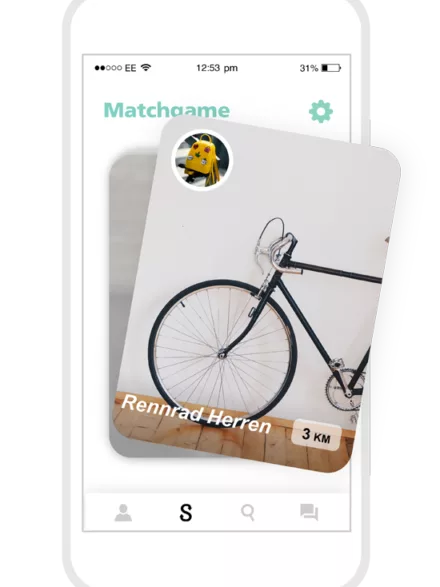
Photo: Swapper
PflanzenTAUSCHmarkt
Here is where seedlings find a new home, favorite plant varieties are passed on and recipe ideas are exchanged: The “PflanzenTAUSCHmarkt” is organised by the initiative “Social Seeds e. V.” in partnership with the Kreuzberg “Prinzessinnengärten”. Plants changing owners is not all that occurs at the market. Advice about the cultivation and care of your own or a community garden can also be readily obtained.
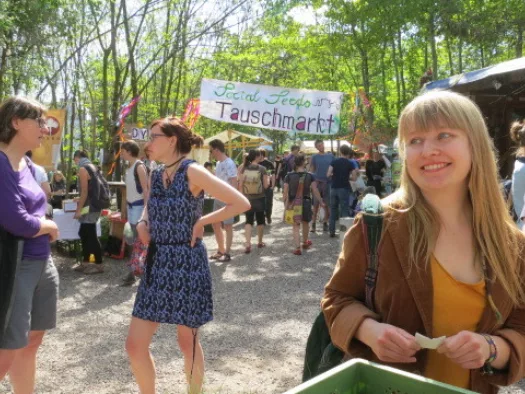
Photo: Prinzessinnengärten
Tauschmobil
An exchange store on wheels: The small van is parked every Saturday morning at the same weekly market in Berlin. It is the locus where things can be dropped off, exchanged or taken away. The “Tauschmobil” was instituted to prompt people to clear out their overcrowded cupboards and maybe discover new things in the process.
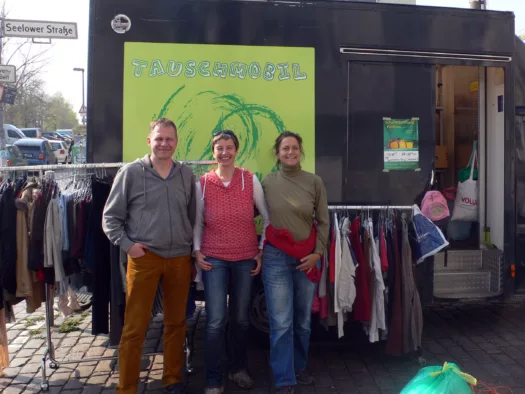
Photo: Fiona Rukschcio
Stoffwechsel
This “for-free” shop in Witzenhausen near Kassel offers still useful things for the taking. Everyone can look for something and take it with them, or bring something to the store that might still be worth something to someone else. The store, which is funded by donations, tries to be an open space for all people, regardless of their budget. It also offers people new to Germany the opportunity to work and interact with others.
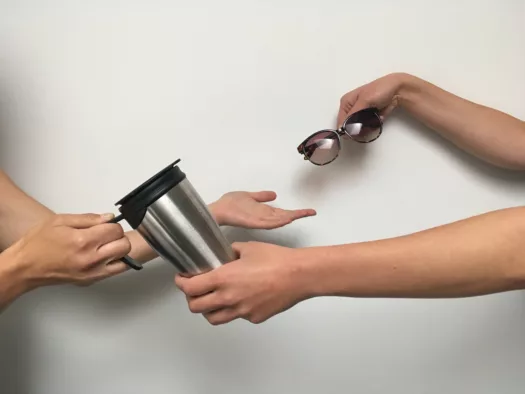
Photo: Futurium
Oldenburger Verschenkmarkt
The project group “Local Agenda 21” in the city of Oldenburg has launched a “Verschenkmarkt”. Things that are no longer needed can be donated at a central location. They are then passed on free of charge to other persons. And it is not only the people of Oldenburg who benefit from the volunteer work of the group: Large parcels containing useful items are often sent to such recipients as flood victims in Germany or hospitals in Eastern Europe.
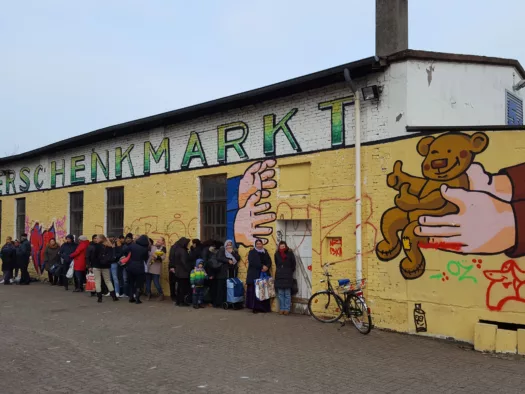
Photo: Uwe Lauterbach / Nordwest-Zeitung